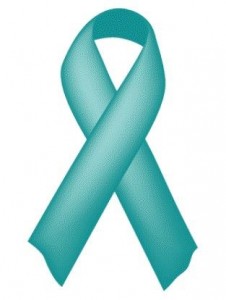
You have probably seen the commercials advertising the HPV vaccine and stating its importance for protection against cervical cancer. But, how much does it really help? Who needs the vaccine? And, when should the vaccine be administered? First and foremost it is important to understand the concern over cervical cancer and why the HPV vaccine has been such a hot topic of conversation. The FDA explains exactly what HPV is and the risks it poses, “HPV is the name of a group of viruses that includes more than 100 different types. More than 30 of these viruses can be passed from one person to another through sexual contact. For most women, the body’s own defense system will clear the virus and they don’t develop health problems. However, some types can cause cervical cancer or abnormal cells in the lining of the cervix that can sometimes progress to cancer. Other types are a major cause of genital warts. For women who do develop cervical cancer, HPV is generally the root cause. In 2006, it is estimated that there will be 9,710 new cases of cervical cancer and 3,700 deaths attributed to it in the United States. Worldwide, cervical cancer is the second most common cancer in women; and it is estimated to cause over 470,000 new cases and 233,000 deaths per year… HPV is the most common sexually transmitted infection in the United States. The Centers for Disease Control and Prevention (CDC) estimates that about 6.2 million Americans become infected with genital HPV each year and that over half of all sexually active men and women become infected at some time in their lives.”
While the cervical cancer vaccine would seem to be only for girls, it is actually recommended for both boys and girls between the ages of 9 – 12 but if that window has been missed the CDC does recommend that girls and women through the age of 26 receive the vaccination and boys and men through the age of 21 receive the vaccination. The vaccine is administered as a series of three injections over a course of 6 months. But, a vaccine is only worth it if it truly makes a difference. The CDC notes that HP V vaccines are incredibly successful, “Gardasil and Cervarix are highly effective in preventing infection with the types of HPV they target. The vaccines have been shown to provide protection against persistent cervical HPV 16/18 infections for up to 8 years, which is the maximum time of research follow-up thus far. More will be known about the total duration of protection as research continues. HPV vaccination has also been found to prevent nearly 100 percent of the precancerous cervical cell changes that would have been caused by HPV 16/18. The data so far show duration of production for up to 6.4 years with Cervarix and for up to 5 years for Gardasil—in women who were not infected with HPV at the time of vaccination.” If you are in the correct age group for the HPV vaccine or you have children that are, consult your physician to discuss your options to help protect against cervical cancer.

